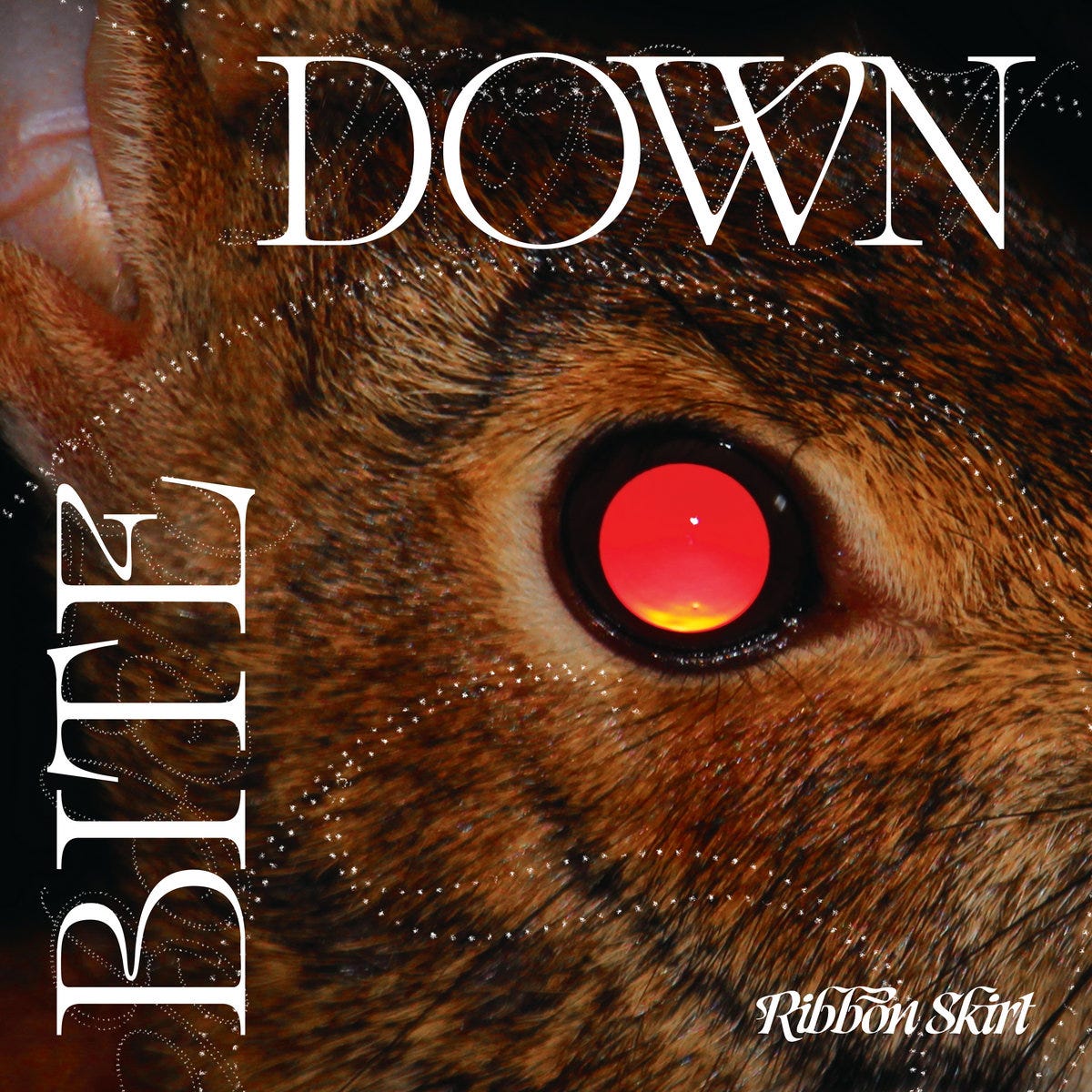There is something electrifying about witnessing a band shed its skin and become a new entity. The shift isn’t always telegraphed. There are no “some personal news” social media posts signalling the change, but it’s unmistakable nonetheless. A slow burn catches and becomes a self-fueling blaze. What once felt like coded language or cautious metaphor now arrives sharpened, louder, and less interested in being understood than in being acknowledged. The name and sound change, and so does the posture: more teeth, more tension, more truth. This isn’t about becoming something new. It’s about becoming more fully what was always there, just beneath the surface, waiting for the right moment to bite down.
That moment comes early on Bite Down, the debut album from Ribbon Skirt (formerly known as Love Language), a duo featuring Anishinaabe musician and singer Tashiina Buswa and multi-instrumentalist Billy Riley. The album opens with “Deadhorse,” a smouldering pyre that feels like a spiritual reckoning. “How do you stop a ghost from getting up and leaving?” Buswa asks, before answering herself: “Sit down / Calm down / Breathe in / Breathe out.” Her voice is low and deliberate, like she’s casting a spell or breaking one. The ghost isn’t just metaphorical. It is a version of the band shaped to be palatable to a non-Indigenous audience who couldn’t, or wouldn’t, conceive of an Indigenous post-punk band.
“Deadhorse,” like the whole of Bite Down, feels like Ribbon Skirt laying that version of themselves to rest. It’s not mournful, exactly, but it is heavy with the weight of release. The song doesn’t build so much as it unravels, peeling back layers of performance until what’s left is raw, unfiltered, and real. This is perhaps most evident on the gnarly pop snarl of “Off Rez,” where Buswa delivers one of the album’s best lines: “They want 2000’s Buffy Marie / They want my status but they’re getting my teeth.”
Bite Down is more than just an album about anger. An undercurrent of survival runs through its synth lines and shoegaze-shifting melodies. “Cut” and “Look What You Did” are darkly catchy, sliding from deadpan motorik rhythms to heart-in-your-throat beats that feel vital and urgent. “Wrong Planet” confronts the MMIWG crisis with a fury that is both righteous and deeply personal.
“Cellophane” incorporates Anishinaabe musical elements, not as decoration but as foundation. It is a grounding reminder that even in their most distorted, industrial moments, Ribbon Skirt is rooted in something deeper than genre. It is the song that best encapsulates what makes Bite Down so compelling. Ribbon Skirt is no longer trying to be something they are not. They are allowing themselves to exist in their natural state: louder, sharper, and unapologetically hard to ignore.
![the act of just being [t]here](https://substackcdn.com/image/fetch/$s_!moQy!,w_40,h_40,c_fill,f_auto,q_auto:good,fl_progressive:steep/https%3A%2F%2Fsubstack-post-media.s3.amazonaws.com%2Fpublic%2Fimages%2Fedc03f78-2893-4045-9600-2bacb96b8fa5_1080x1080.png)
![the act of just being [t]here](https://substackcdn.com/image/fetch/$s_!pLeR!,e_trim:10:white/e_trim:10:transparent/h_72,c_limit,f_auto,q_auto:good,fl_progressive:steep/https%3A%2F%2Fsubstack-post-media.s3.amazonaws.com%2Fpublic%2Fimages%2F0d02a71c-d57a-4a4b-b90c-22191b1e1244_2688x512.png)


